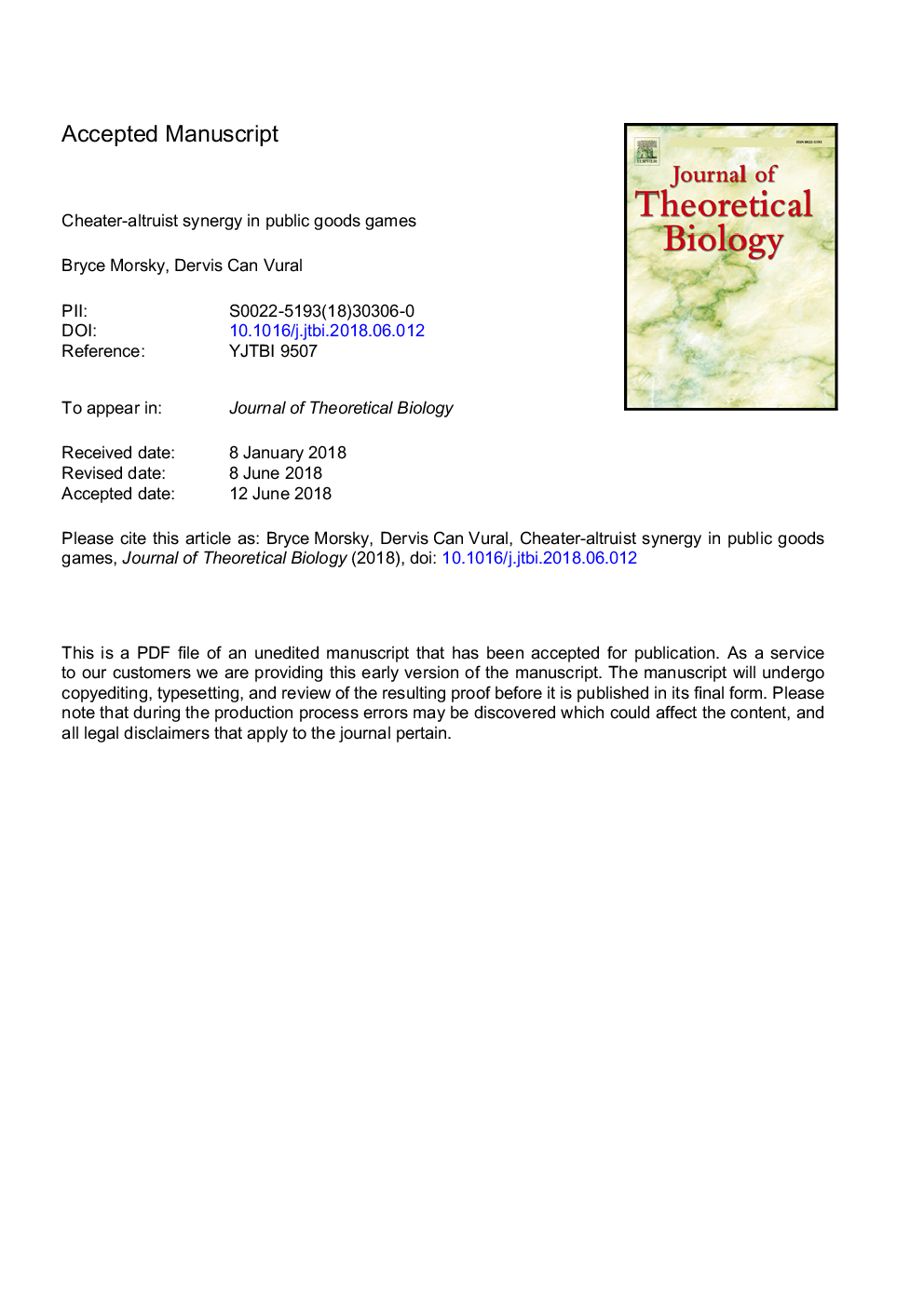| Article ID | Journal | Published Year | Pages | File Type |
|---|---|---|---|---|
| 8876568 | Journal of Theoretical Biology | 2018 | 28 Pages |
Abstract
Much research has focused on the deleterious effects of free-riding in public goods games, and a variety of mechanisms that suppress cheating behavior. Here we argue that under certain conditions cheating can be beneficial to the population. In a public goods game, cheaters do not pay for the cost of the public goods, yet they receive the benefit. Although this free-riding harms the entire population in the long run, the success of cheaters may aid the population when there is a common enemy that antagonizes both cooperators and cheaters. Here we study models of the interactions between tumor cells, which play a public goods game, and the immune system. We investigate three population dynamics models of cancer growth combined with a model of effector cell dynamics. We show that under a public good with a limiting benefit, the presence of cheaters aids the tumor in overcoming immune system suppression, and explore the parameter space wherein it occurs. The mechanism of this phenomenon is that a polymorphism of cheaters and altruists optimizes the average growth rate of the tumor, which is what determines whether or not the immune response is overcome. Our results give support for a possible synergy between cooperators and cheaters in ecological public goods games.
Keywords
Related Topics
Life Sciences
Agricultural and Biological Sciences
Agricultural and Biological Sciences (General)
Authors
Bryce Morsky, Dervis Can Vural,
